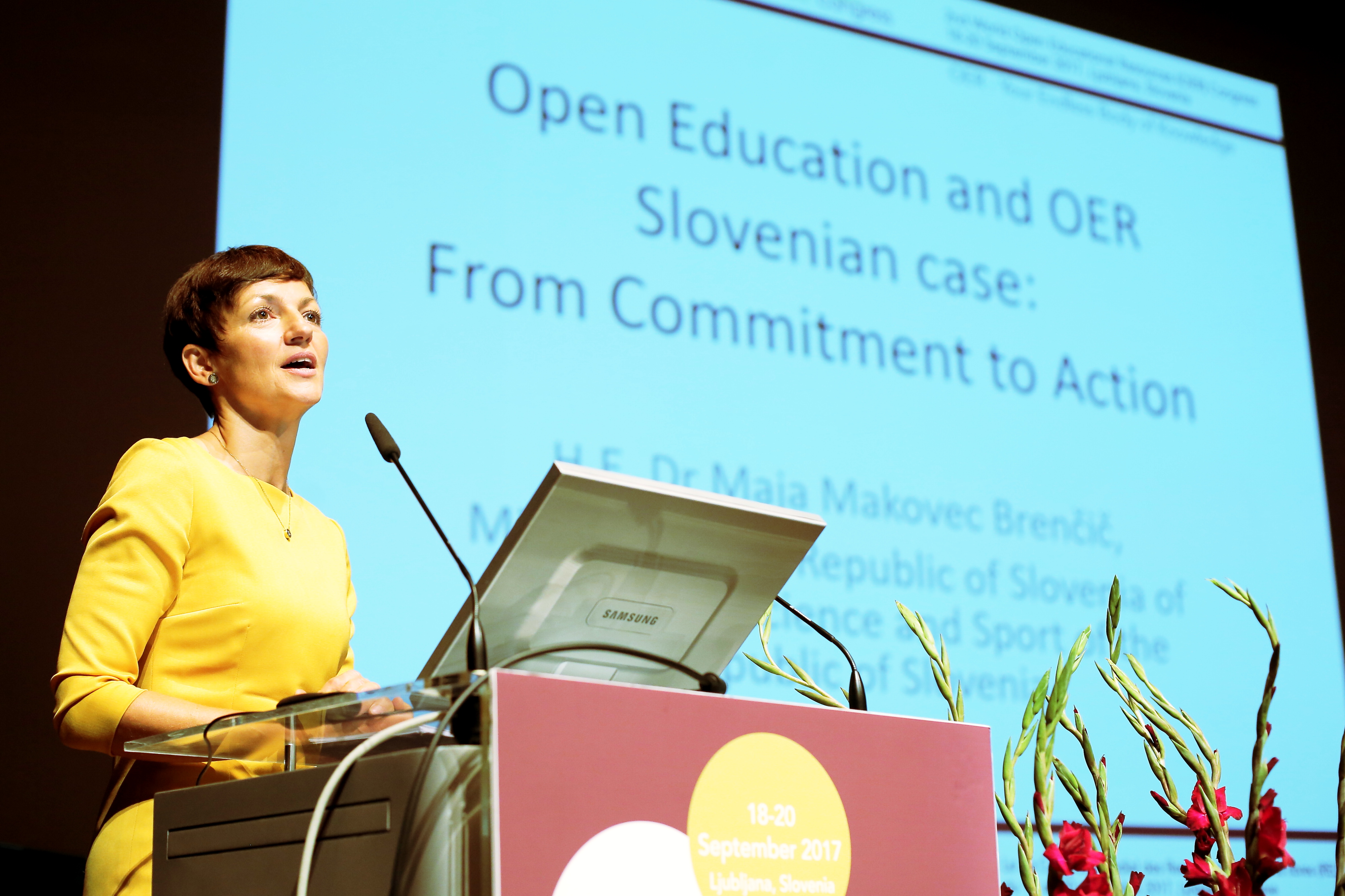Help us protect the commons. Make a tax deductible gift to fund our work. Donate today!

Minister of Education, Science and Sport, Dr. Maja Makovec Brenčič. By: Slovenian Press Agency. CC BY 4.0
30 ministers of education and 690 members of the open education community (140 of them virtual) from 111 nations convened in Ljubljana, Slovenia at the 2nd OER World Congress with the goal of mainstreaming open education to meet the education targets in the United Nations SDG4. In addition to the 3-day Congress program, there were 21 satellite sessions with presentations about artificial intelligence to copyright reform to regional OER networks. Creative Commons was excited to participate in sessions, give a keynote (text / video), help draft key documents, and meet with ministers and other open education leaders from around the world.
This Congress comes after six regional consultations attended by 257 participants from 105 countries, and five years after the 1st World OER Congress where UNESCO member states unanimously approved the 2012 Paris OER Declaration.
The theme of the Congress: “OER for Inclusive and Equitable Quality Education: From Commitment to Action” – called for governments to take action. After extensive consultation with the global open education community, the 2017 Ljubljana OER Action Plan (English / French) was unanimously adopted. The attending Ministers further supported this call to action with a Minsters Statement (English / French).
The 2017 Ljubljana OER Action Plan focuses on five areas for government action:
1. Building the capacity of users to find, re-use, create and share OER
2. Language and cultural issues
3. Ensuring inclusive and equitable access to quality OER
4. Developing sustainability models
5. Developing supportive policy environments
Congratulations to everyone who helped move the world to this moment! Now the hard work begins. Open education advocates, NGOs and IGOs need to help national governments and their ministries / departments of education to accomplish the “suggested actions” in each of these five areas.
Now is the time for governments to review their national and SDG4 education goals, and ask if their existing financial and procurement structures are optimized to mainstream open education. Now is the time for national governments to act:
- publicly funded educational resources should be developed and shared as openly licensed resources;
- public institutions should control the copyrights to educational resources they purchase from vendors (thus allowing them to share these resources under open licenses);
- public policies should support and incentivize educators to create, update and share OER; and
- publicly developed and maintained ICT infrastructure should support all learners.
The Creative Commons global network looks forward to working with our NGO and IGO partners to help governments realize the actions called for in the 2017 Ljubljana OER Action Plan.
Let’s get to work.
Additional Resources:
- Virtual OER Congress (sign up to access videos, etc.)
- Open Education and OER Slovenian case: From Commitment to Action
- Congress brochure
- List of participants
- Speeches
- OER Congress / #OERcongress
- Cape Town + 10 (launched at the Congress)